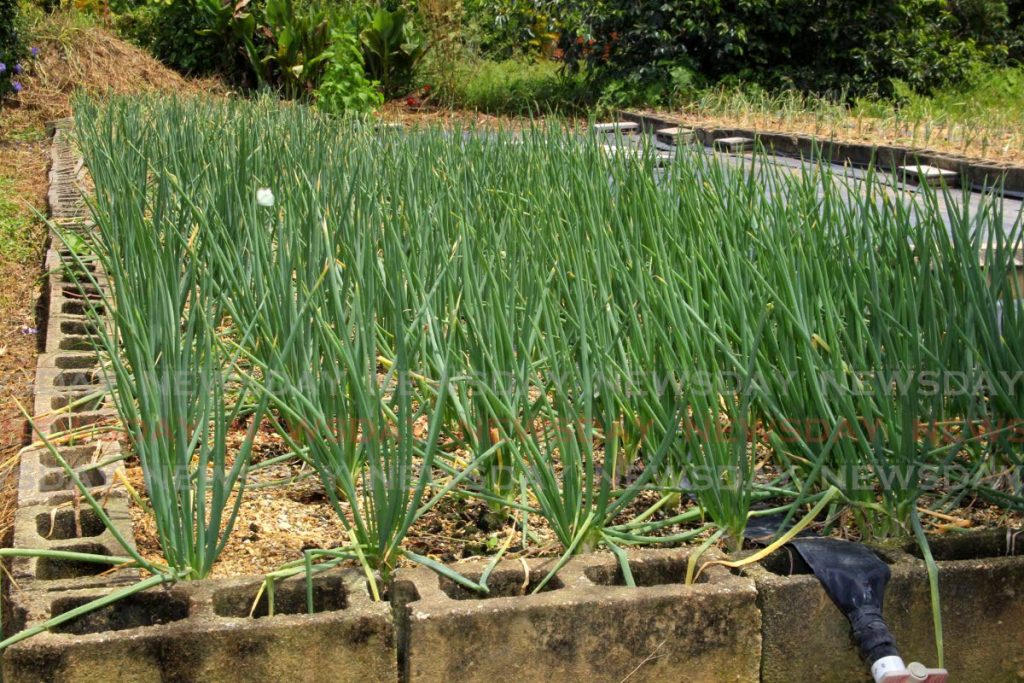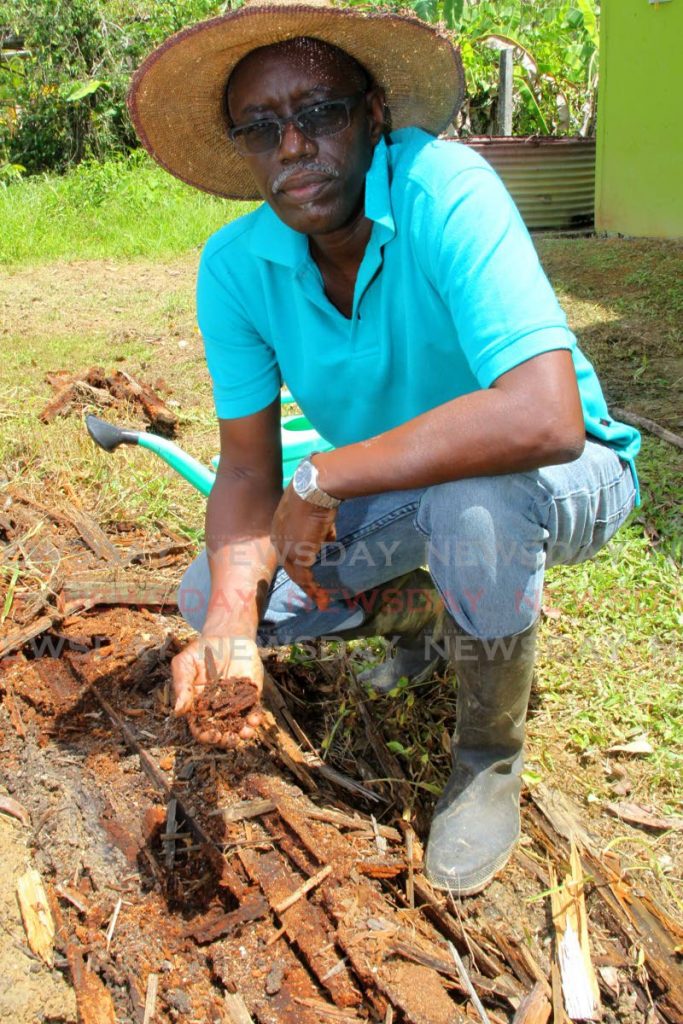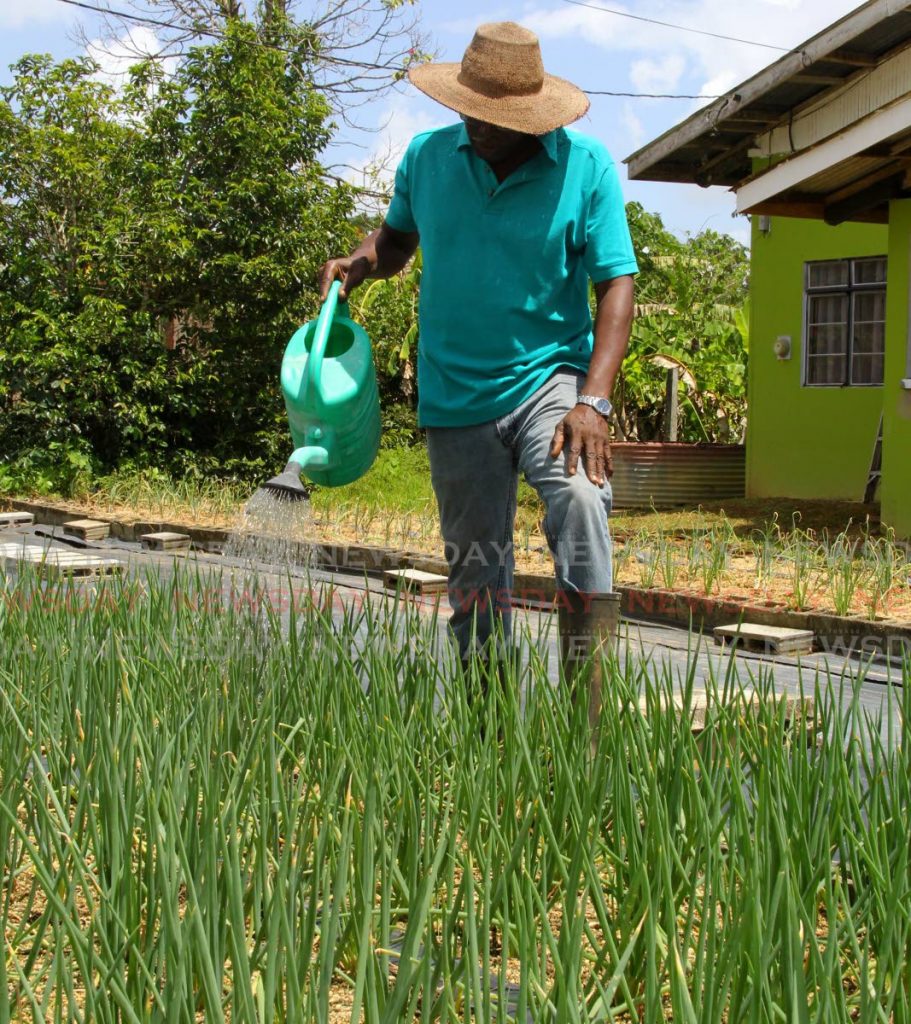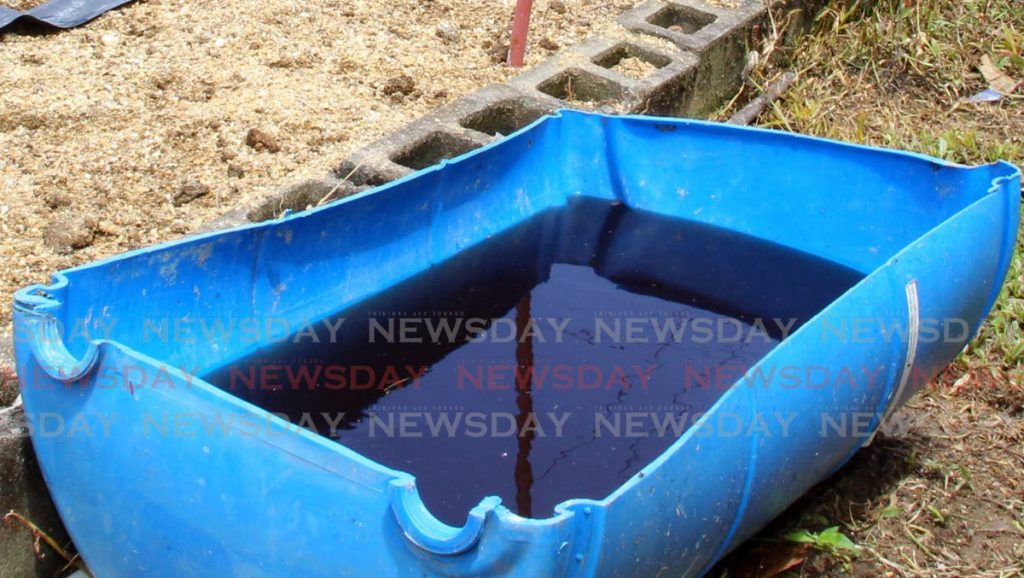Covid19 may make people grow their own food

With the continuing spread of the coronavirus (covid19), the people of TT may soon need to start growing their own food.
Vonrick Graham, a short crop farmer in Wallerfield for over 20 years, told Sunday Newsday about the positives of doing just that.
He said TT’s food import bill was several billion dollars but if the average person completed five courses with the Extension Training and Information Services (ETIS) division of the Agriculture Ministry and had a 10-by-10 feet space to plant, they could feed a family of five a balanced diet and significantly reduce that bill.
He suggested courses on growing vegetables, pulses (legumes such as split peas, black-eyed peas and pigeon peas), and ground provision, as well as repairing spray cans, and fixing small gas engines. He said that way people could have carbohydrates, proteins, fats, iron, and fix their spray cans and brush cutters.
Using himself as an example, he said he usually bought very few items at the market and they included carrots, onions, and garlic. He also had plants such as lemon grass, chaya spinach, cure-for-all, bois canot, mint, bay leaf, and soursop so he rarely bought teas or chocolate drinks.
“I have not been sick with the flu or the virus for the last 15 years and my family is the same. I credit that with the way I grow my food and a healthy lifestyle. If you take as many of these courses that you can, your whole concept of food and health will change. You will get much more than you cater for.”

For his livelihood Graham plants vegetables including pimentos, hot peppers, and zucchini, which he said were the most lucrative for him. He said he attended most of the free courses provided by the ETIS including growing cucurbits (the gourd family of vegetables), landscaping, and compost tea.
“What I have discovered, and why I started to do so many of them, was because every time you go to a course, it builds upon your knowledge base and help you as a farmer. If you only do one or two you are short-changing yourself.”
Extolling the benefits of compost tea, Graham said he did not have to use any fertilisers or pesticides on his crops and the produce was usually larger with a longer shelf life.
To prove the point, he pointed out chives he planted in a grow box in his yard. Half the plants from the tips were dry while closer to the roots were still green. He said they had been discarded two weeks previously and instead of rotting they were slowly drying up.
“If I had grown that with fertiliser, that would have done melted, rotted and started to smell real bad. It’s a big difference.”
He said he was introduced to compost tea at the beginning of 2019 by one of the ETIS training officers.

“We did a pilot project with about 250 pimento plants and that has changed my whole concept of how I do agriculture. One of the things I learned is that a plant has an immune system and the stronger you build the plant, the easier it would be able to fight pests and diseases. For a farmer like myself where cost is important, I don’t have to put out a whole set of money to fight insects and I have a healthier crop. My problem is I have this superior, organic product and have to go and fight for the same price in the market as the man who uses a whole lot of pesticides, which I don’t find is fair.”
He said before the tea he would have to buy hydroponic fertiliser at $300 a bag as well as calcium nitrate at about $150, and Epsom salts, as well as filters for the pump to run the irrigation system for his grow boxes. He said he used the mixture for six days, and plain water on the seventh.
With the tea however, he used a watering can to water the plants once per week. He saved over $1,000 over a six-week period.
He explained that healthier plants had thick cell walls and so were more resistant to pests and diseases. He said piercing and sucking insects as well as rasping pests created openings in the plant which made it easier for diseases to infect them. However, if the plant walls were healthy and strong, the pests could not damage them. The plants were also more resistant to diseases because of their healthy immune systems.
The main ingredient in compost tea is worm castings (poop). He also uses rotten wood to grow the fungal population, sugar for the good bacteria to feed on, dechlorinated or rainwater, and other ingredients. He simply mixes the ingredients together, aerates it using an air stone and pump, and in two days the compost tea is ready for use.

He explained that the tea built the microbial population in the soil. He said the plants feed the microbes sugars, the bacteria take the sugars and gives the plants antibiotics and nutrients. With constant use, the tea also improves the soil.
However, there were still challenges. In addition to low prices for excellent produce, he said it was difficult to find reliable help. “For me, farmers are rooted in production. Sometimes the time it takes to get your produce sold, you have to depend on someone else to care for the crops. You have to hope that they actually spray the plants, or they don’t thief the chemicals you asked them to spray. You have to be there all the time.”
He said after that the most challenging thing was the limited number of markets in TT. However, he said over the past few years there has been improvement with the significant increase in the number of farmers markets where farmers could sell their produce wholesale and retail without a middleman thereby making a better profit.


Comments
"Covid19 may make people grow their own food"